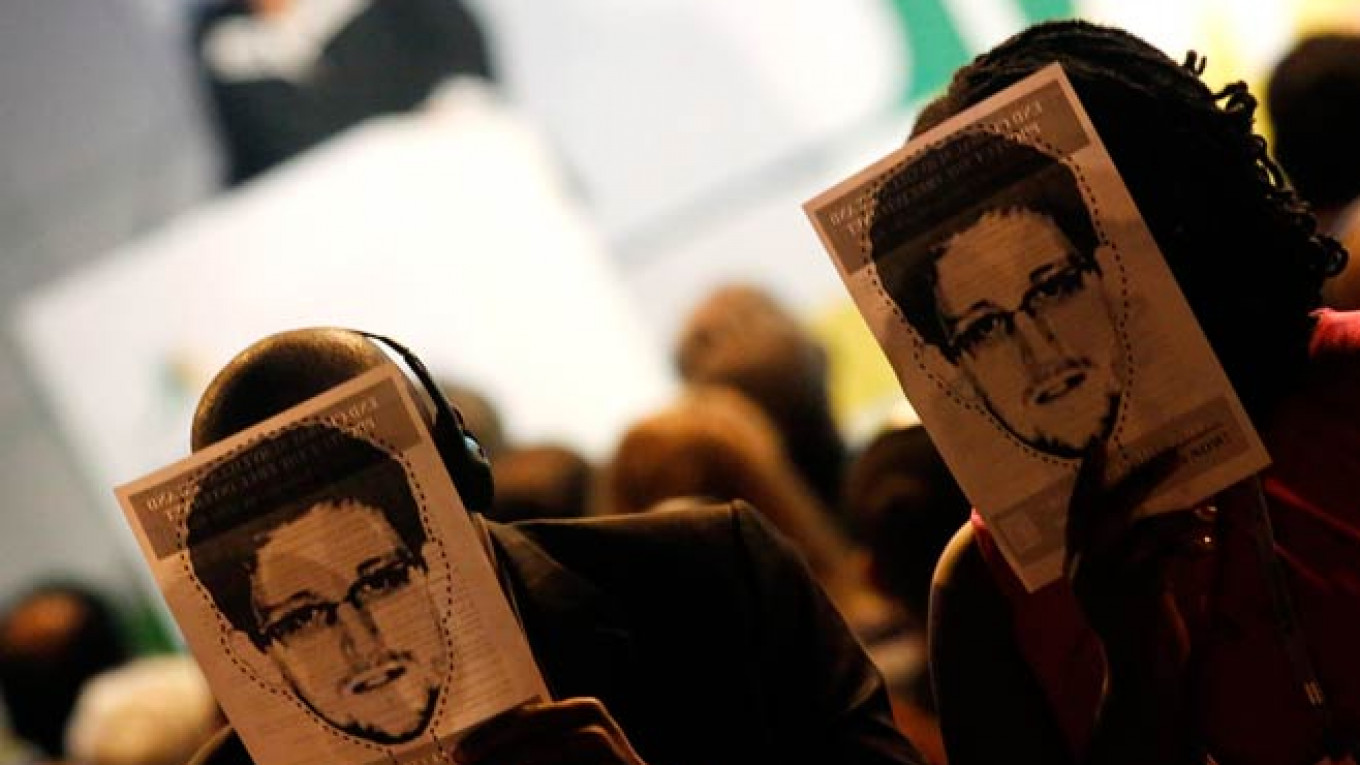Fugitive U.S. intelligence leaker Edward Snowden, who now lives in Russia, was inaugurated as the lord rector of Scotland's University of Glasgow on Wednesday after being elected to the post by its students.
The university's rector is elected by students to represent them with the school's senior management for a period of three years. Snowden, who was granted asylum in Russia last summer after leaking details of U.S. surveillance programs, will perform those duties in absentia.
"In a democracy people have a right to know the policy of their government … this idea that if we believe in something we should stand up for it is what I will follow in my role as rector of the university," Snowden said, addressing a crowd of students and staff by a live video link.
Snowden could not attend the ceremony in person as he faces arrest in Britain and other countries over U.S.-imposed espionage charges.
The 30-year-old former NSA contractor flew to Russia last June after leaking tens of thousands of classified documents revealing mass U.S. government surveillance of U.S. citizens and world leaders. He spent more than a month in the transit zone of Moscow's Sheremetyevo Airport before being granted one-year renewable asylum status in Russia.
Snowden currently resides in an undisclosed location, living what he described in an interview as the life of an "indoor cat." He works as a technical administrator for one of Russia's largest websites, according to his legal representative Anatoly Kucherena.
In addition to his new role as university rector, Snowden also serves on the Freedom of the Press Foundation board of directors.
Previous rectors at Glasgow University have included Israeli nuclear weapons program leaker Mordechai Vanunu and anti-apartheid activists Winnie Mandela and Albert Lutuli.
Contact the author at i.nechepurenko@imedia.ru
A Message from The Moscow Times:
Dear readers,
We are facing unprecedented challenges. Russia's Prosecutor General's Office has designated The Moscow Times as an "undesirable" organization, criminalizing our work and putting our staff at risk of prosecution. This follows our earlier unjust labeling as a "foreign agent."
These actions are direct attempts to silence independent journalism in Russia. The authorities claim our work "discredits the decisions of the Russian leadership." We see things differently: we strive to provide accurate, unbiased reporting on Russia.
We, the journalists of The Moscow Times, refuse to be silenced. But to continue our work, we need your help.
Your support, no matter how small, makes a world of difference. If you can, please support us monthly starting from just $2. It's quick to set up, and every contribution makes a significant impact.
By supporting The Moscow Times, you're defending open, independent journalism in the face of repression. Thank you for standing with us.
Remind me later.






